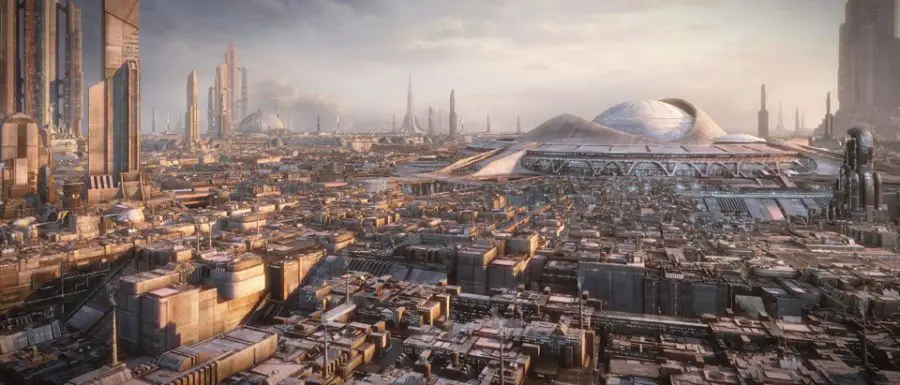
I’ve never been good at drawing connections between things. I’m perfectly fine with Point A and Point B being distinct and separate dots on a grid, but I pretty much have to be prompted to plot between them, and often along the way I get derailed. So what I’m going to write about today most probably will be disjointed or unfocused. So it goes.
Last year, I read a wonderful speculative fiction novel by Emma Newman entitled After Atlas. While the plot and the characterizations were notable, what really resonated with me was the future Earth that she envisioned.
In this novel, governments have been replaced by gov-corps – countries run by amalgamations of political and corporate interests. Citizens are micro-chipped, which is accepted as beneficial – sure, one’s whereabouts and activities are under constant surveillance, but then, no one needs to carry wallets anymore. Win/win, right? And folks can opt out, if they want – but those who do must make special arrangements, both technical and administrative, when traveling or engaging in personal commerce.
Also in this iteration of the future, privilege includes strategic manipulation of technology: how much can be seen and how much can be hidden. Those with money and power have virtually unlimited access to (or cover from) whatever they wish. For those with little, there is the illusion of choice. And for those who have nothing? Destitute individuals can enter into “contracts” with brokers that then can be bought and sold, locking that person into a never-ending cycle of debt and obligation.
Many go about their lives content with the restrictions under which they exist; for all intents and purposes they are taken care of and have entertainments, options, potential. In fact, one of the best aspects of After Atlas is that the main character is not rebelling against this world (even though there is ample tension afoot there) – he is a man with a job to do, plain and simple (except with the best of books, nothing is ever plain or simple, and this is a good book – I urge you all to read it).
But the point I want to make is how plausible that imagined future was. It didn’t fit the standard dystopian story, not really. There were no roving bands of shadowy revolutionaries, waiting for the opportunity to wreak havoc on authority. No omnipresent militia (a police force, yes, but who doesn’t have a police force?), no anarchist hooliganism, no religious dissent, no overt rebellion (“overt” rebellion, mind you). There were those who chose to live outside of the technological net, but they were not militant. Selective, yes. Militant, no.
And I thought to myself, “This feels eerily authentic. This could be our future.”
But that wasn’t all. Something else kept badgering me. We read about dystopias – so many dystopias! – or about plausible futures, mostly as entertainment. (Ah, the plucky hero or heroine prevailing against all odds!) While many imagined futures are incredibly grim, others do have happy endings. A few, like After Atlas, are neither overtly cautionary nor complacently complicit in the world that is to come.
But…. how do we get to these dystopias, these plausible futures? What is the turning point that sets us on the path from where we are now, to these potentialities? They all start out in our own reality, after all. They all come from us.
Of course, there are the alien invasions and the ecological disasters, the pandemics and alternate realities and such, but what about the After Atlas‘s? Or the litany of books that have our world returning to a high-fantasy landscape due to the catastrophic eradication of society and technology as we know it? So many stories are written about where we end up at the far side of that particular rabbit hole. But … what if we are tumbling into it right now?
Love him or hate him, you have to admit that under the Trump administration, America is bound to change and the world will follow suit. I’m not interested in a debate on whether that’s bad or good. But with the severe ideological changes that will be enacted by an unchecked political party with a decidedly corporate-invested, conflict embracing, dark money financed nationalistic agenda, even if some sense of balance is achieved in years to come, might not this be the time that the wheels are set in motion to bring about an Earth such as what Ms. Newman envisioned? Or at the cataclysmic end of the spectrum, the beginning of the Hunger Games type of dystopia brought about by nuclear warfare induced by a destabilized international conscience? After all, the Hunger Games, The Canticle of Liebowitz, The Windup Girl, The Handmaid’s Tale, Ready Player One, Brave New World, Persona, Fahrenheit 451, Neuromancer, The Running Man, The Children of Men, A Clockwork Orange, The Giver, Divergent, Never Let Me Go, The Road, Cloud Atlas, World War Z, Station Eleven, Pirate Cinema, Do Androids Dream of Electric Sheep, Feed, The Chrysalids, Altered Carbon, Nine City Burning, even The Sword of Shannara, etc, etc, etc … had to start somewhere.
Are we at Point A that will bring us to After Atlas as Point B? Or something even more dire?
A chilling thought. Of course it’s just conjecture – no one really knows what the future holds, and honestly, conflict sells more books than sunshine and rainbows. (At least books that go for $20+ fresh off the first hardcover printing.) Heck, we might truly be at the brink of a brave, new world, one without affectation, cynicism or demagoguery. It could happen!
How about this – how about we plan to meet back here in 100 years, and see where we are then? Find out which of our celebrated authors came the closest to Point B, if we can find one?
Might be fun, don’tcha think? I tell you what – I’ll bring cookies.
~ Sharon Browning

